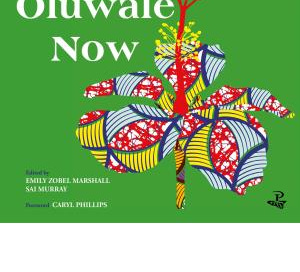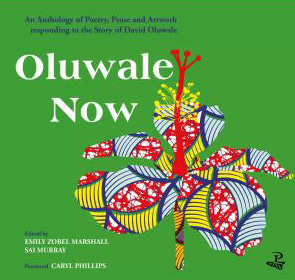There are always excuses, and it feels to me as though this Substack consists of little else, but of course you don’t see those excuses unless (as here) I choose to write about them. You just see the lacunae that excuses produce. And actually you don’t even see those, because Substack doesn’t have an algorithm that results in you being sent regular reminders that I haven’t posted anything for a while. My last post was in May, just before I disappeared into the period of exam marking which, because of a combination of inefficiency and over-scrupulousness, seems to leave room for little else. Since then, we have spent time abroad in France and Spain, dodging the depressing news of racially motivated violence at home.
I haven’t thought of anything original to add to the all spilled ink/pixels on that subject, which thankfully is yesterday’s news anyway, so instead, but relatedly, and while I continue to dither about what I sh/c/ould be doing here, I will offer this piece that was published last year in Oluwale Now: An Anthology of Poetry, Prose and Artwork responding to the Story of David Oluwale.
His Name is Alive
I first heard the name David Oluwale today, 1st February 2023: the deadline day of the call for submissions to this anthology. It has taken almost 54 years for the news of David’s death to reach me, although I was born the year before he died, and grew up less than thirty miles away.
Obviously, I don’t remember 18th April 1969. As a 15-month-old, I would have been a toddler, probably getting under mum’s feet at home. Looking up the date, I find it was a Friday, the day the Craven Herald newspaper that my dad worked for was published. He would often pop into the office on a Friday morning then take the rest of the day off, so perhaps mum and I accompanied him the few miles to Skipton, crossing the waters of the river Aire as they flowed from their source at Malham, on through my birthplace of Keighley, and into Leeds, the big city, where that night they would carry David’s body down over Knostrop Weir towards Skelton Grange.
I have now read that the uncovering of police brutality towards David, and the subsequent trial, caused ‘a national scandal’ but I was still too young to have been aware of that. David’s story remained unknown to me until a few hours ago when a Scottish accented woman of the same Yoruba ethnic background as David, who now lives in Nottingham, mentioned him to me in a Zoom meeting as I sat in my current home in Llanelli, South Wales. Growing up, this now mundane collapsing of geographical separation into the square boxes of a computer screen would have been the stuff of science fiction. So much has changed.
Yet the next thing I read is of the theft of the blue plaque in commemoration of David, the vandalism of its temporary replacement and the associated racist graffiti on the civic trust offices. How much has changed?
Reading a little about the background of David’s life and death, I encounter a word that was as familiar to me growing up as actual Black people were rare. One of the books written about David uses the word in its title, and on police paperwork, David’s tormentors were reported to have scrawled in the space for ‘Nationality’ that word: ‘wog’. This was the word that I recall being most commonly, and casually, used for Black people when I was growing up.
The lovely West Indian cricketer, Lloyd, who played alongside my brother-in-law in our small-town cricket team and became a good family friend was one. And there the list of Black people I knew in childhood ends. I’m not sure that I even made the link of the term with the golliwog figures that beamed from the labels of our Robinson’s breakfast jam, though I was aware of that connection by the time I was old enough to roll my eyes at the ‘absurdity’ – as it seemed then – that anyone might take offence at a children’s cartoon figure.
Well-meaning multiculturalism manifested itself in my primary school in the form of Mrs Wellington (fresh out of teacher-training college) reading us the stories of Little Black Sambo, and Epaminondas and His Aunt. “You ain’t got the se-ense you was born with,” I vividly recall her drawling, in imitation of the most crudely sterotyped idea of a black accent to the hilarity of our biddable young minds.
Every night of my infancy, my lovely mum, with not a hint of malice or ill will for anyone, whatever their race or background, would sing me a lullaby that ended ‘great big moon am shining, stars begin to peep, it is time for piccaninnies to go to sleep.’
On a day-trip drive, my dad, who would ordinarily have despised anything that smacked of vandalism, nevertheless commented approvingly at a wall traversing a farmer’s field with the slogan ‘Enoch Powell for PM’ painted in large white (of course) letters.
My big brothers enjoyed telling their little brother close to the knuckle jokes, and while I am notorious for forgetting punchlines, I do remember the one that relied on a pun on the names of the transatlantic pilots, Alcock and Brown.
My sisters, my friends, their parents, indeed everyone I knew, used the term ‘Paki shop’ as blithely and neutrally as they used the term ‘top shop’ for the other one, the one that wasn’t run by somebody with brown skin, who called himself ‘John’ — presumably as an exercise in friction reduction.
Long after I had become aware that such terms were generally best avoided, I could tell myself, for years, that all of this was ‘innocent’. Because ‘I’m not a racist’.
When, as a schoolteacher, I challenged my students for their ‘homophobia’ in casually using the slur, ‘that’s gay that is’, I did so by inviting the one black girl in my class to tell us how she would feel if people casually said, ‘that’s n*****r, that is.’ What I failed to do was to imagine how she would feel hearing that word, regardless of the context, on my lips.
I’m not ‘a racist’, but I am born of racism. Born into racism. An inheritor of racism. A beneficiary of racism. I have acquired the racism that it has been my privilege to ‘relinquish’ from generations of ‘I’m not a racist’s.
This needs work. And that work needs to be collaborative. It is work that, however ‘anti-racist’ I may self-identify as, can never be complete. It needs to be done alongside those harmed simply by my being able to have lived the life I have.
Today, David Oluwale rose from the river that flowed through my childhood and in which he was borne in death. He looked at me with those confounded and caring, proud and pleading eyes from the police photo that would have been the only image of him, but for the creativity and contumacy of the artists and sculptors who re-make his humanity. He spoke to me in the words of the writers and activists who have retold his story.
His name is alive — David Oluwale.





👍👍👍